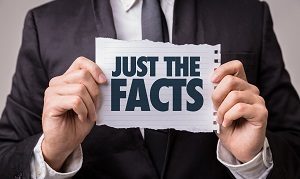Social media sites such as Facebook can be a huge asset to your homeowners association. These advances can help cut costs, boost the community’s environmental sustainability, and make communicating with residents quicker and easier. For all of the benefits that social media and other technologies provide, there are always drawbacks if used incorrectly. Here are some practical tips on how to effectively use social media in HOAs.
The Best Way to Use Social Media in HOAs
Communication has never been more convenient. With the evolution of technology comes the birth of social media — a powerful tool IF used the right way. Homeowners associations, for one, have a lot to gain from social media. The instant connectivity allows HOAs to disseminate information, give updates, and send out reminders much quicker and with relative ease.
As a member of the HOA board, you can use social media in HOA to your advantage. All it takes is some ground rules and due diligence. Here are the best social media practices for HOAs:
1. Establish Objectives and Guidelines
 Having a social media account for your HOA is a great idea as it helps to build the type of community that your association is striving for.
Having a social media account for your HOA is a great idea as it helps to build the type of community that your association is striving for.
When creating a page on social media, it is a good idea to set down a few rules and regulations for the way members are allowed to interact on the page. These rules can usually be viewed by everyone who joins the page.
For instance, you can restrict users from publishing derogatory, hurtful, offensive, or false posts/comments. The site administrators — typically comprised of the HOA board and the HOA manager — can moderate posts or comments and even resort to blocking members who continually violate the guidelines.
It is also recommended that you outline your objectives clearly. What do you hope to accomplish with the use of social media? Defining your goals gives you a better overall direction.
2. Select Your Platform Wisely
The HOA is an organization, which means not all social media platforms will suit your objectives. You may be tempted to join a handful of sites, but this would be counterproductive. Many HOAs go with Facebook since it is a good platform to connect and engage with community members. It is also ideal for communicating updates and events on a large scale. Let your objectives shape your decision on which platform to ultimately go with.
3. Don’t Stray from the Facts
 With the use of social media in HOAs, a surefire way to avoid issues is to go with the facts. This includes what you post on social media.
With the use of social media in HOAs, a surefire way to avoid issues is to go with the facts. This includes what you post on social media.
For example, you can post information on your HOA Facebook page about upcoming events or meetings, new clubhouse rules, and the welcoming of new board members.
However, you must steer clear from posting opinions to avoid conflict or inflammatory quarrels from taking place.
4. Focus on Engagement
One of the best things about social media is its ability to create engagement on an unprecedented level. Homeowners associations must use this to their advantage.
You can’t have a successful social media page when your audience (community members) consistently ignores posts. When you’re just starting to use social media in HOA, you’ll find that engagement should be your first focus. A good way to accomplish this is to share relevant photos (from community events or meetings) and publish posts that encourage feedback.
5. Maintain a Business Mindset
Board members like you should always keep in mind that, when it comes down to it, the HOA is an organization. More importantly, it is a business. Your HOA Facebook page shouldn’t look like a personal page. Keeping this in mind will help everyone post appropriately. The social media account, in a way, is an extension of your HOA. Thus, you should present a professional aspect for any potential homeowner.
6. Confidentiality Is a Priority
 Sharing is the very nature of social media. Because of this, you may find yourself sharing everything that crosses your mind. Without self-awareness, it can be easy to cross a line. As such, it is important to remember that confidentiality is a top priority.
Sharing is the very nature of social media. Because of this, you may find yourself sharing everything that crosses your mind. Without self-awareness, it can be easy to cross a line. As such, it is important to remember that confidentiality is a top priority.
Always think twice before posting anything on your HOA Facebook or social media, whether you’re a board member or not. If you wouldn’t share the information at a meeting, it is probably not appropriate to share it on social media as well.
7. Be Mindful of the Law
The invention of social media has given rise to a plethora of new laws and reignited some old ones, too. Copyright, plagiarism, and privacy rights matter more than ever. Furthermore, social media platforms have their own policies in place. Members can even claim emotional distress after reading certain posts. With this in mind, you must always check with the law and think before you publish anything. Remember, posts on social media last forever — even after you delete it.
The Downsides of Using Social Media in HOAs
Social media has revolutionized the way we communicate with each other. While this can be a good thing, social media has its pitfalls, too. Be mindful of these cons when you use social media in HOAs:
1. Convenient to a Fault
 Social media has made information dissemination so convenient that HOA board members like yourself may be tempted to use it in place of written notices. Doing this opens you up to all sorts of legal issues, though.
Social media has made information dissemination so convenient that HOA board members like yourself may be tempted to use it in place of written notices. Doing this opens you up to all sorts of legal issues, though.
When using social media, it is always important to remember that comments on social media pages do not count as written notice. Legally, the court also does not consider them to be as such.
For example, a written warning concerning a violation of the bylaws will not be recognized as legitimate if the interaction took place on social media. For such important items, it is still necessary to resort to the method of mailing a notice.
2. Easily Associated with Personal Pages
 One of the greatest selling points of social media is connectivity. When you create a page for your HOA on social media, you interact using your own account. You provide people with a quick link to your personal page.
One of the greatest selling points of social media is connectivity. When you create a page for your HOA on social media, you interact using your own account. You provide people with a quick link to your personal page.
For this reason, you must be more careful about what you post on your own personal page, especially if you’re an officer or board member.
Elected board members accept to take on a large responsibility. You are now held to a higher standard of accountability both in board meetings and in your private life. You should understand the inflammatory nature of social media and the way that it can affect your respectability. Awareness can be improved by holding special educational sessions about how to use social media in HOAs.
3. Can Feel Impersonal
Another downside of social media is its tendency to become robotic and mechanical. While it makes interactions convenient, it limits face-to-face contact. Conveying tone through text can also be difficult — near impossible even. In this way, social media can feel impersonal and inauthentic.
Use Social Media in HOA Responsibly
As you can see, just about anyone can effectively use social media in HOAs with the help of these tips. Begin by setting your guidelines and defining your objectives before diving deeper into the world of social media. Don’t forget to factor in the many pitfalls associated with this interactive technology. Although using social media properly can be challenging, it is surely worth the time and effort to see an increase in community engagement.
Many homeowners associations continue to have difficulty in this field and turn to HOA management companies for assistance. If you need help with your HOA Facebook or social media account, feel free to give us a call.
RELATED ARTICLES:
- HOA Communication Tools: Keeping A Close Knit Community
- 5 Top HOA Management Issues Caused By Poor Communication In HOA Community
- 9 Ways To Go Paperless In Your HOA






